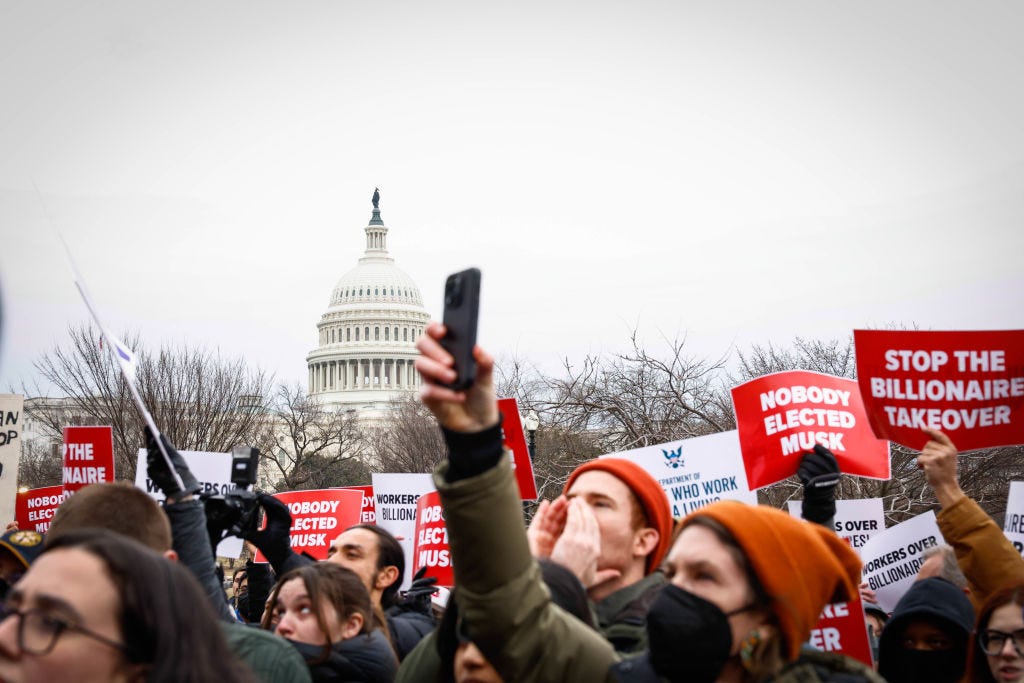Technology vs Democracy
The origins and ideology of Muskworld
Much of what Donald Trump has done so far is recognisable from his first term: the use of tariffs to force negotiations, 25% on steel and aluminium imports, the overhyped deportation “spectaculars”, the paranoid fixation on his enemies real and imagined. The structure of his economic and foreign policy teams are similar to term one, as are the debates they’re having. There is, as last time, no clarity over his legislative agenda.
The big difference is Elon Musk. It was obvious before the inauguration that he had successfully ingratiated himself with Trump and would play a significant role, but no one knew quite what it would look like. Now we know that he, and his handpicked team, mostly people who’ve worked for his companies, have been allowed to insert themselves into government departments, with no effective controls whatsoever.
A lot of this activity appears straightforwardly unconstitutional, and federal courts are starting to react by imposing temporary injunctions, some of which will ultimately be tested in the Supreme Court. But his team of wreckers is doing plenty of damage in the meantime, not least to USAID and the millions around the world who depend on them. Musk is now publicly talking about judicial orders being ignored, which is the point at which the constitution properly starts to fall apart.
In term one Trump had almost no support from Silicon Valley, Peter Thiel (more on him later) was the only prominent tech billionaire to back him. Musk, and many of his online allies like venture capitalist Marc Andreessen, donated to Hillary Clinton in 2016. Nor did they develop a relationship with Trump while he was President. It wasn’t until Biden’s term that the shift started to happen (and it hasn’t happened everywhere, there are still a lot of Silicon Valley Democrats). Understanding why is critical to figuring out what Musk is trying to do now.
For many he is simply a drug-addled fool – at least outside his areas of competence – who’s memed himself into believing a bunch of wild conspiracy theories. To others he’s another kleptocratic billionaire using political access and media manipulation to enrich himself. But, while there may be elements of both motivations, neither are adequate as explanations for what’s going on. Not least because he’s not doing it by himself. Musk exists within a community that has been travelling together in the same direction, albeit at different speeds. There is ideology here, rather than merely cynicism or stupidity.
And like all new and extreme ideologies it is baffling to those who inhabit the existing political mainstream. Perhaps even more than usual because revolutionary movements tend to be earnest and, thus, open, about what they believe. They write manifestos and record statements. This one, though, has emerged from an internet culture built around multi-layered irony and trolling which makes it hard to know who exactly believes what, especially for those who haven’t grown up online. It’s left an older generation of political reporters and politicians, used to playing a game with a familiar set of rules, struggling to adequately respond or explain what’s going on.
So in the rest of this post I’m going to outline the evolution of Muskworld’s ideology, what it tells us about their goals, and how to stop them.
Keep reading with a 7-day free trial
Subscribe to Comment is Freed to keep reading this post and get 7 days of free access to the full post archives.


